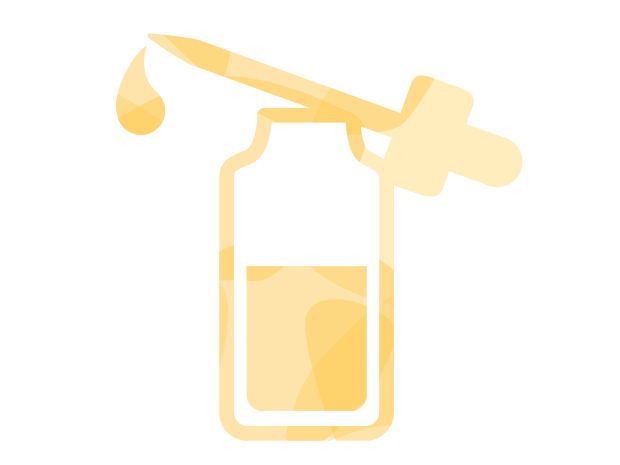
How much apple cider vinegar should you take per day?
Moderation is key. Just 1–2 tablespoons is a perfect amount of apple cider vinegar per day.
Try a tablespoon first, then work up to two.
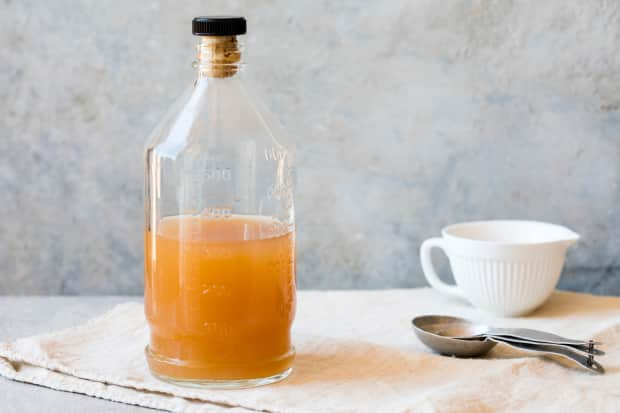
Last Updated: August 27, 2021
Here's a new take on an old saying — "Apple cider vinegar each day keeps the doctor away.” From health to beauty to your home, ACV can do you a lot of good. Read on to find out how.
This article is for informational purposes only. It is not, nor is it intended to be, professional medical advice, diagnosis, or treatment. Please consult with a physician or other healthcare professional regarding any medical or health related diagnosis or treatment options.
Your best kept, all-in-one, health, beauty, and home maintenance secret might be gathering dust at the back of your kitchen cupboard or fridge. Yes, we’re talking about that dusty old bottle of apple cider vinegar.
It’s worth digging into the far reaches of your pantry to find because that bottle is full of health and beauty benefits! Here's all the in-cider information on ACV's desirable effects and the best ways to use it.
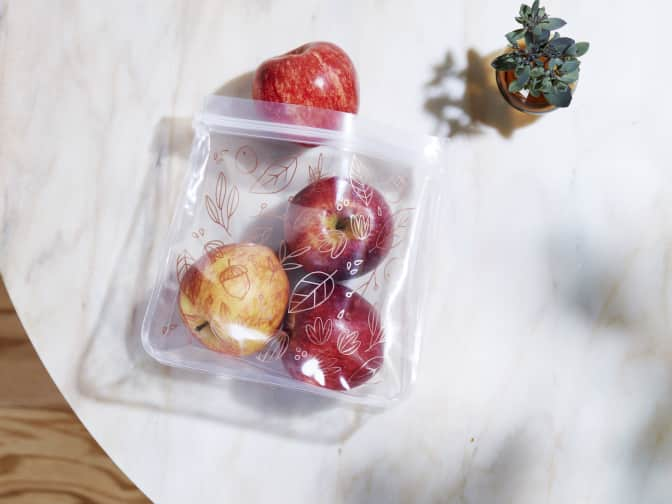
Straight up, no chaser — apple cider vinegar is the fermented juice from crushed apples. It contains acetic acid, vitamin C, B vitamins, plant-based antioxidants, and fiber.
While it’s touted all over the internet as a magical ingredient, some claims aren't backed by scientific studies. But an impressive body of research does show that ACV is good for more than just salad dressing.
ACV and white vinegar have their differences — most obviously, they differ in color and smell.
Apple cider vinegar is a luscious, light amber color. Since it comes from apples, it has a higher nutritional value than white vinegar, and its tamer smell and lighter taste make it more versatile for cooking than the clear stuff.
White vinegar is clear. It’s made from fermented grain alcohol and has a stronger taste and smell than ACV. Its antimicrobial properties make it great for cleaning.
GROVE TIP
Technically, no. But if you want to consume apple cider vinegar at its highest quality, try to use it within 2 years of buying it or 1 year after opening it.
Refrigeration doesn't improve its shelf life as long as you store it in a dark, cool pantry away from direct sunlight.
Yes! It's not a miracle cure for anything in particular, but ACV does have a bushel of beneficial uses we can get on board with.
Listen to this podcast that reviews the scientific evidence proving apple cider vinegar benefits to learn more.

Use diluted ACV on your skin to treat acne, soothe a sunburn, and help fight visible signs of aging.
To DIY your own toner, combine 1 part apple cider vinegar with 2 parts water — for sensitive skin, dilute the ACV even more. Apply the toner to your face with a cotton pad after you cleanse and before you moisturize.
To soothe a sunburn, combine at least 4 parts water with 1 part ACV, and apply it to the affected skin with a spray bottle or soft cloth.

An apple cider vinegar hair rinse treats dandruff, reduces tangles and frizz, and helps seal your hair's cuticles to keep moisture in.
To make it, mix two tablespoons of ACV with a cup of water. After you shampoo and condition, pour the mixture over your hair, and work it evenly through your strands and into your scalp. Let it sit for a couple of minutes, then rinse.
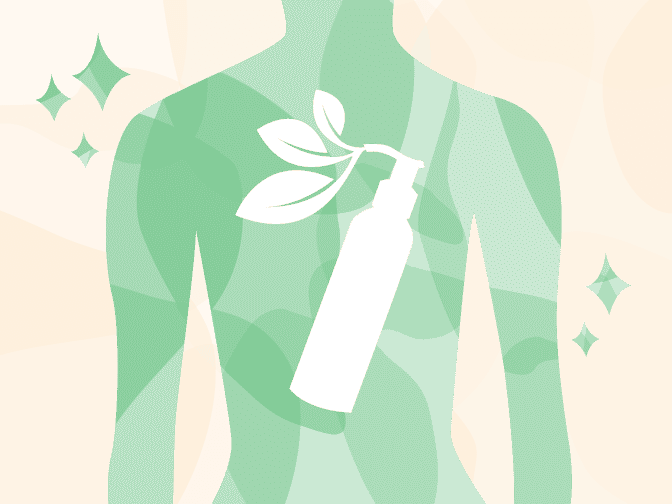
Apple cider vinegar doesn’t replace physical activity and a healthy diet when it comes to weight loss.
But since it’s a probiotic, it aids in digestion and helps lower post-meal blood sugar levels. Paired with healthy food and regular exercise, ACV may help increase the rate of weight loss.
Note: These statements have not been evaluated by the Food and Drug Administration. This product is not intended to diagnose, treat, cure, or prevent any disease.

Moderation is key. Just 1–2 tablespoons is a perfect amount of apple cider vinegar per day.
Try a tablespoon first, then work up to two.
If you can stand the strong, pungent, pucker-inducing taste of it, mix the ACV into a cup of water, and drink up!

Straight vinegar not your cup of tea?
Use ACV in salad dressings or marinades, or add it to juice to make it more palatable.

If drinking ACV is a hard no, take it as a gummy or capsule.
These have similar benefits to drinking it, and they often include additional nutrients.
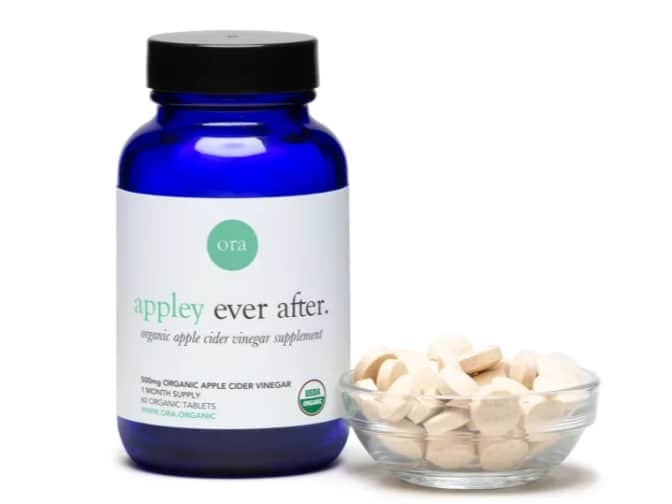
Skip enduring the unique taste, while still enjoying the health benefits of apple cider vinegar with these Ora Organic Organic Apple Cider Vinegar Pills.
Plus, by switching from liquid to these pills, you’ll prevent tooth-enamel erosion that can happen over time from the acetic acid in regular, liquid apple cider vinegar.
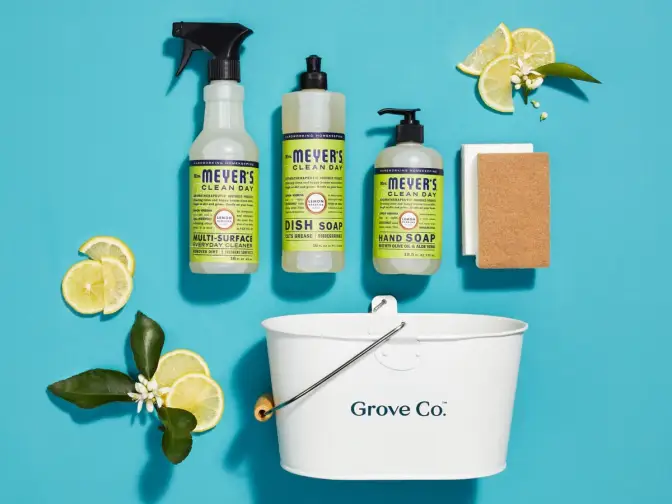
Wondering who Grove is, what types of products we offer, and how to get a free gift set when you sign up? Learn more about flexible monthly shipments, customizing your shipment, and joining millions of happy households — no monthly fees or commitments required.
GROVE TIP
Oh mama! The "mother" in ACV is a product of fermentation. It forms when the yeast and bacteria react and create a probiotic.
You'll see strands of the "mother" floating around in your bottle of apple cider vinegar. The probiotic status of ACV will help 'mother up' your gut health game!

ACV isn’t all rainbows and cupcakes. Before you take it as a supplement, consider this:
GROVE TIP
Apple cider vinegar is safe to use on your pet. Dilute it as you would for your skin, and apply it to your dog’s coat to help repel fleas and microbes.

Yes! Purchase an ACV cleaner, or make your own all-purpose cleaner with one part water and one part ACV.
Use it to clean hard surfaces in the kitchen and bathroom, including countertops, hard water stains, and drains.
The acidic nature of ACV makes it useful for tough jobs like mildew, but it doesn't replace antiviral cleaning practices. If you're concerned about viruses, read up on our Covid-19 cleaning protocols.
Both ACV and white vinegar are effective natural cleaners. ACV doesn’t smell as harsh as white vinegar, but since white vinegar is slightly more acidic than ACV, it’s a stronger cleaning agent.
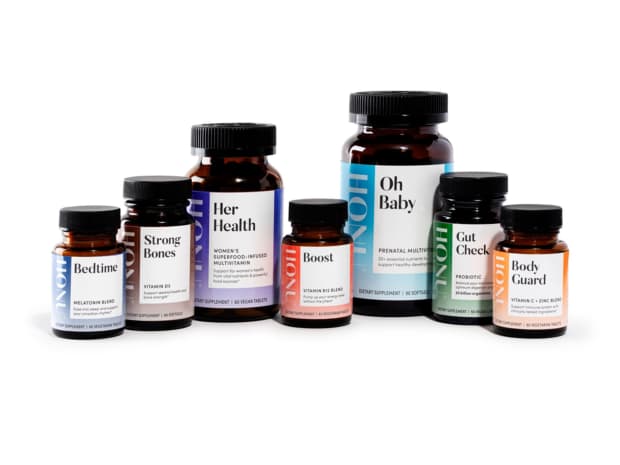
We've pulled the top 15 probiotics as determined by Grove members. Select from any on the list and get them delivered to your door!
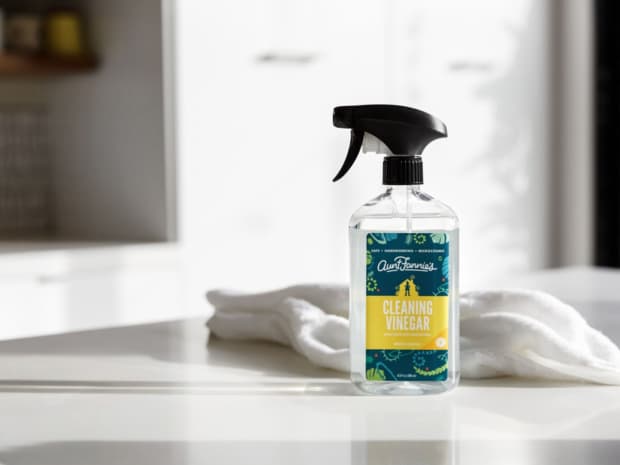
Vinegar is a great all-natural cleaner that’s been used in households for ages. But what really is vinegar and can it tackle nasty bacteria?
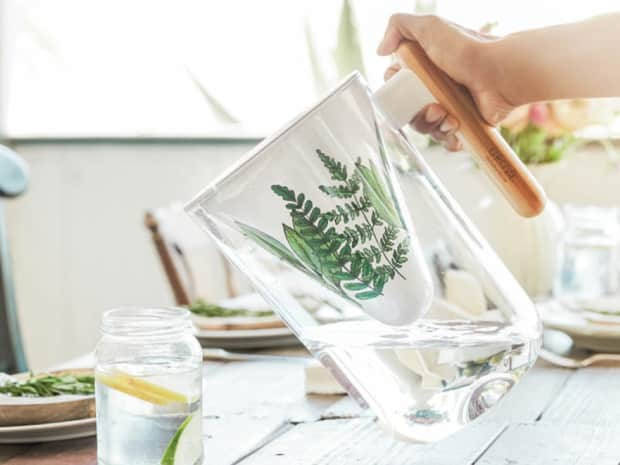
Parents everywhere have proclaimed the use of vitamin C to thwart illness, but is this vitamin also an effective weapon for your skin?
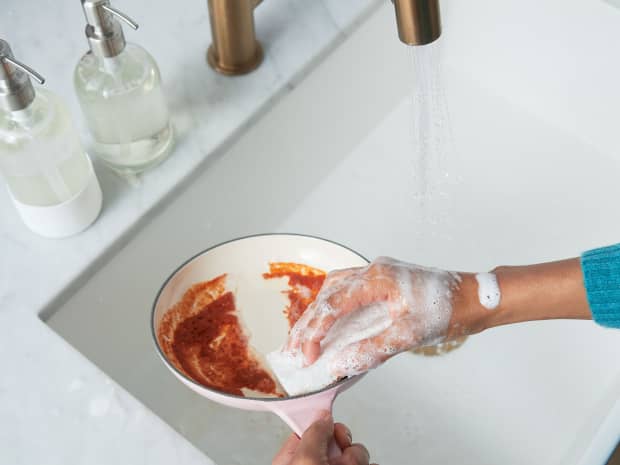
Baking soda is one of the best-known and most versatile natural cleaners, but how do you actually clean with baking soda? We’re here to find out.